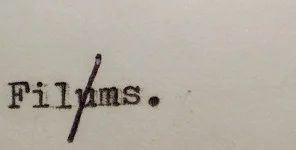Humble opinions from Drew Ninnis, festival attendee and nobody.
Number of Films: 21 films + 4 Shorts.
Films I Missed: Rita Jahan Foruz; Shadow in Baghdad; In Between; Handa Handa 4; Under the Same Sun; Sweets.
Not Shown: The Ceremony.
Top Pick: The Dune.
Best Documentary: Album 61.
Booby Prize: Anita B; The Art Dealer; Hora 79. (A hotly contested three-way tie.)
Best Performance: Niels Arestrup, The Dune.
Worst Performance: The entire cast of Anita B.
Outstanding Direction: Yossi Aviram, The Dune.
Outstanding Screenplay: Liron Ben-Shush, Next to Her.
Best Use of a Patriot Missile Battery: The Second Son.
Wrap-up: What an uneven festival; one that I suspect had to lower the quality bar substantially to admit enough current films from 2013-14 to justify the designation “film festival.” I’ve commented at length on the quality problems of that trifecta of terrible Anita B,The Art Dealer, and Hora 79; but on reflection they really did seem like made for T.V. films scraped from the bottom of the barrel. There were also a few inclusions that I didn’t review as part of the festival – Woody Allen’s Magic in the Moonlight and Zach Braff’s Wish You Were Here – as these seemed more like advanced screening sideshows to pull in patrons that will receive a latter cinema release.
Leaving those aside, the inclusion of several orphans, usually documentaries, that are unlikely to get a cinema release or find a home elsewhere reinforced the value of a film festival. For every Anita B there was a film like Album 61 which, while not explicitly touching on Israeli issues, gave festival goers like me an opportunity to see something fascinating. Ditto the equally great documentary Let us Assume, For a Moment, That God Exists which despite its affectations provided a moving portrait of life in Tel Aviv. These two films would be frustrating in any other context; in both cases a little too short and slight to recommend as theatre releases, yet needing a sort of focus and commitment that a casual T.V. airing is unlikely to demand from audiences. What I did get from these was a slice of the identities and powerful passions that complicated the image of simply an “Israeli” festival, and demonstrated that there is more than just the politics of the Middle East that drives filmmakers to comment on these issues.
The greatest strength of the Israeli Film Festival, due in part to the long Diaspora of the Jewish people, is the range of cultural voices presented here. Sure, there was a constant theme of Israeli identity and many of these filmmakers, characters, subjects are united in their conscious choice to embrace their Jewish religious or national identity, but conversely the diversity of their cultural backgrounds and perspectives created a real richness to the variety of films shown. My favourite remains a Russian accordion player in Let us Assume, For a Moment, That God Exists; but I was equally moved by the consummately French masterpiece The Dune. Palestinian issues are also present and deftly addressed, although from a predominantly Jewish point of view, in The Second Son and Self-Made demonstrating that a festival does not have to be dominated by the political but can – at least in this case – address and transcend it for the moment. That is perhaps the second great accomplishment of this festival program; the issues are there, not denied, and they are addressed in such startlingly new and original manner that I never felt overwhelmed or bored by it. Many of these films find new ways to speak to old issues, which is laudable.
The choice of opening and closing night films? Understandable, but shaky. The billing of Self Made as a comedy rather than a surrealist comment will have many audience members scratching their heads, but it does address what I take to be the spirit of the festival – new perspectives, new ways of showing, a diverse culture and identity, but common grounds. The Green Prince is an obvious choice for closing night film, neatly offering a polished package of hope, but as I highlighted in my review it remains problematic as a documentary for me. I would have picked Let us Assume, For a Moment, That God Exists as a better closer, and a more gentle portrait of common ground and hope that embraces many points of humour. I also keenly missed the absence of The Ceremony, which aired in some locales but not others.
The AICE Israeli Film Festival remains a great showcase for Israeli films, and sadly sparsely attended this year. That’s a shame, and I expect that part of the reason is the current conflict; a shame, because although these are “Israeli” films, they demonstrate that filmmakers don’t uncritically identify with that designation and in many cases mount potent criticisms of current affairs. The spectre of protests in Sydney is equally as disappointing; in many cases, Palestinian advocates would gain a lot of sympathy, understanding, and new awareness from encouraging people to see these critical Israeli films.
And overall, I can’t complain. There were some outstanding films in this festival – and that’s why I love them. It doesn’t matter if you come to see an absolute bomb of a film, as soon as you are out of the theatre there is another interesting film showing and something else to see. Most will pick and choose a film or two that catches their eye; I try to get to everything in the hope that I’ll catch something completely different. That was certainly the case this year; and I look forward to the twelfth festival next year.

